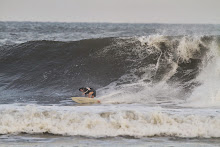1. first, I would like to understand why some lobsters don´t attack seahares (is this true for any species of seahares?) Do they have some toxic substance (tasting bad) that make the lobsters sick?
2. the lobsters that don´t attack a seahare, what happens if you present an alternative food? May be they just have had a delicious dinner, who wants to eat then? In this way, may be you can prove that it is really hunger that makes the difference.
3. what does the seahare gain from the sensitization behaviour? Can it really avoid to be killed by the lobster in some way?
ok, Hillbilly, more questions than hypotesisis! Science (the journal) is eagerly waiting!
Have fun,
Klaus
__________________________________________________________
ill--
I'm guessing you're correcting as well as possible for this, but human
nature operating on and being aware of your hypothesis might introduce
slight artifacts in the way that your collaborators are presenting the
sea hares to the lobsters. That is, *knowing* that you're in a preserve
you may present them more gently or more tantalizingly than out of the
preserve, where you don't expect the lobsters to go for it so present
them more dismissively. Akin to presenting a tasty burger (or maybe,
more accurately, a cold, day-old burger) on a silver platter versus,
say, in your shoe.
One way to try and normalize this would be to bring both types of
lobsters to the lab and do blind studies of presentations where the
presenters (humans) don't know which lobsters are from the preserve and
which aren't. Of course, this introduces other potential artifacts; a
more complex but entertaining way to do this would be to blindfold your
divers until they're at the site so they don't know if they're in the
preserve or out of it.
Overall though I doubt that this would be sufficient to explain your
differences. I do like your idea that lobster density, and
correspondingly group community dynamics, might influence behavior. To
continue my odd analogy, if there are a lot of other potentially hungry
people around me I might be more inclined to eat the cold burger out of
the shoe based on survival instincts that tell me if I don't eat it,
someone else will, and I'll lose out. Whereas if I'm alone I'm not as
pressured; if I don't eat the cold burger, it'll just stick around, and
when I get hungry enough I'll go for it, just not right now, thank you.
Cheers,
Chris
I'm guessing you're correcting as well as possible for this, but human
nature operating on and being aware of your hypothesis might introduce
slight artifacts in the way that your collaborators are presenting the
sea hares to the lobsters. That is, *knowing* that you're in a preserve
you may present them more gently or more tantalizingly than out of the
preserve, where you don't expect the lobsters to go for it so present
them more dismissively. Akin to presenting a tasty burger (or maybe,
more accurately, a cold, day-old burger) on a silver platter versus,
say, in your shoe.
One way to try and normalize this would be to bring both types of
lobsters to the lab and do blind studies of presentations where the
presenters (humans) don't know which lobsters are from the preserve and
which aren't. Of course, this introduces other potential artifacts; a
more complex but entertaining way to do this would be to blindfold your
divers until they're at the site so they don't know if they're in the
preserve or out of it.
Overall though I doubt that this would be sufficient to explain your
differences. I do like your idea that lobster density, and
correspondingly group community dynamics, might influence behavior. To
continue my odd analogy, if there are a lot of other potentially hungry
people around me I might be more inclined to eat the cold burger out of
the shoe based on survival instincts that tell me if I don't eat it,
someone else will, and I'll lose out. Whereas if I'm alone I'm not as
pressured; if I don't eat the cold burger, it'll just stick around, and
when I get hungry enough I'll go for it, just not right now, thank you.
Cheers,
Chris

No comments:
Post a Comment